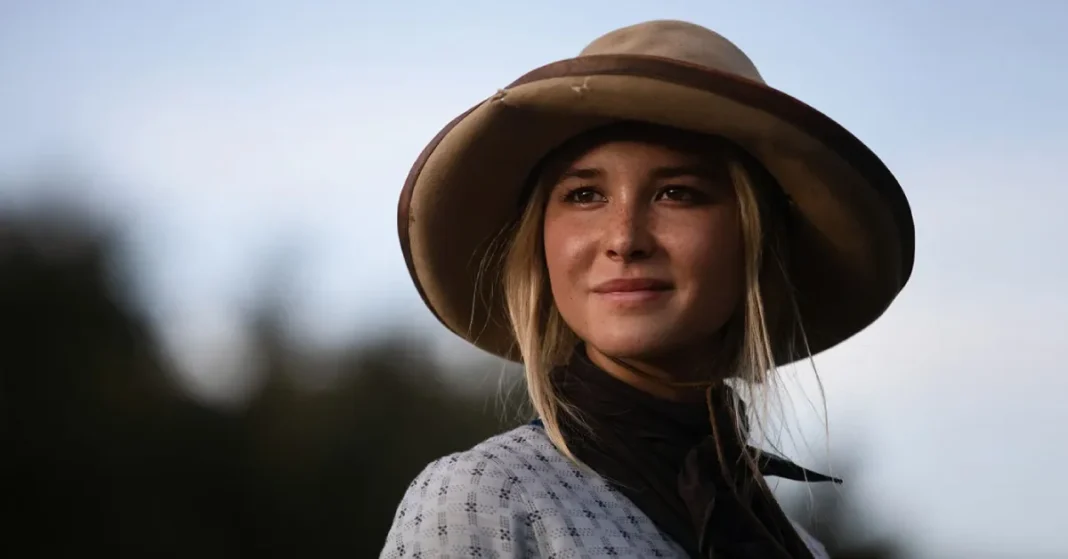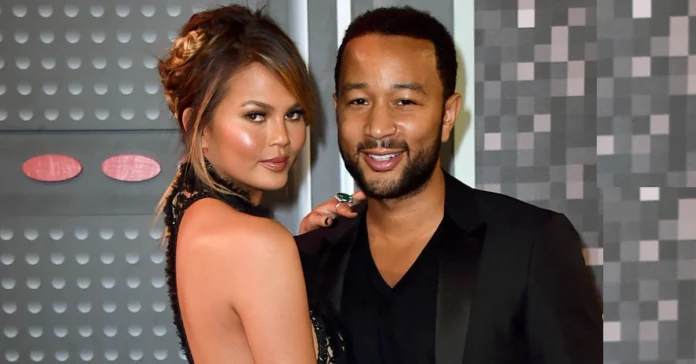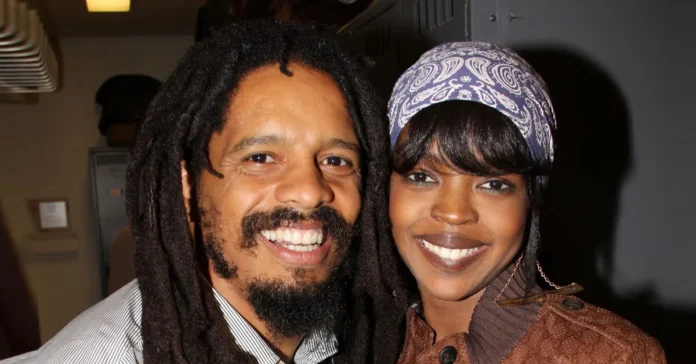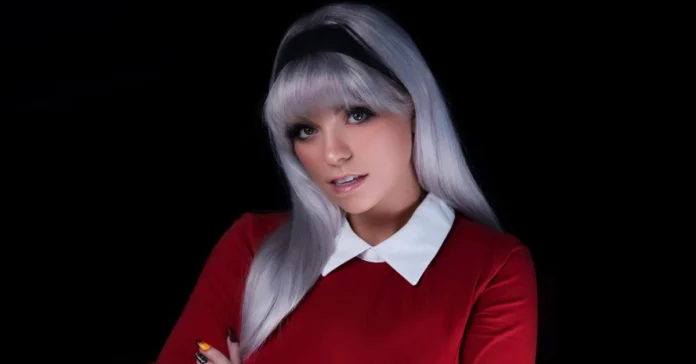Life on the American frontier demanded courage. And in “1883,” few characters carry that weight like Elsa Dutton. She’s the eldest Dutton child, and she doesn’t just cross rough land—she narrates every mile of it, shaping the origin story of a family tied to Montana for generations.
Who is Elsa Dutton?
Born April 9, 1866, in Tennessee, Elsa embodied the fierce independence that defined America’s westward expansion. At just 17, she left behind everything familiar to trek toward an uncertain future with her parents, James and Margaret Dutton.
Elsa didn’t care much for rules. While other girls her age worried about corsets and reputations, she was out riding horses, wearing pants, and chasing the kind of freedom most people wouldn’t even dare imagine. Her honest narration guides viewers through the harsh realities and unexpected beauty of frontier life.
Isabel May brings Elsa to life with raw authenticity. Her performance captures both youthful optimism and growing wisdom as Elsa faces challenges that would break most adults. Through May’s portrayal, we experience the frontier through fresh eyes – sometimes naive, often perceptive, always genuine.
“The land has ways of testing you,” Elsa says at one point—quietly, like someone who’s just learned it the hard way. Those tests don’t just challenge her; they change her. She starts a sheltered girl from Tennessee. She ends up someone who can hunt, fight, and love without hesitation.
Family Tree
The Dutton family represents American resilience, with Elsa standing as its most vocal witness. Her parents, James and Margaret Dutton, form the foundation of what will become the largest ranch in Montana.
James Dutton, portrayed by Tim McGraw, carries the weight of his family’s future on his shoulders. A Civil War veteran haunted by past traumas, James sees the West as a chance for rebirth. His bond with Elsa runs deep – he respects her spirit while struggling to protect her from frontier dangers.
Margaret Dutton, played by Faith Hill, balances frontier practicality with maternal protection. Her relationship with Elsa evolves throughout their journey as she watches her daughter embrace frontier life with unexpected enthusiasm.
Elsa’s younger brother, John Dutton Sr., represents the next generation that will carry forward the Dutton name in Montana. Another brother, Spencer Dutton, completes the immediate family.
The extended Dutton clan includes Jacob Dutton (James’s brother) and his wife, Cara Dutton, whose stories continue in the series “1923.”
What makes the Dutton family remarkable isn’t just their determination to survive but their willingness to adapt. Through Elsa’s eyes, we witness this transformation as eastern sensibilities give way to western pragmatism.
Elsa Dutton’s Age
At 17, Elsa straddles the line between childhood and adulthood. This liminal age proves crucial to her character development and the narrative perspective of “1883.”
She’s still young enough to see wonder where others see only hardship. That makes her different. While the older travelers grow tired and wary, Elsa somehow finds joy in things that wear others down. Yet she’s old enough to participate fully in the expedition’s challenges, gradually taking on adult responsibilities.
Her age also allows viewers to experience the frontier through uniquely balanced eyes – informed enough to understand what’s happening but fresh enough to question practices others take for granted.
“I look forward, never back,” Elsa declares, embodying the youthful optimism that drives westward expansion. This forward-looking perspective gives “1883” its emotional core and historical context.
Elsa Dutton’s Death
The bright flame of Elsa’s life meets a tragic end when she’s struck by a poisoned arrow during a conflict with Lakota warriors. This moment stands among television’s most heartbreaking deaths, made more poignant by its connection to the Dutton family’s future.
As infection spreads through her body, Elsa faces death with characteristic courage. She asks her father to bury her in a valley whose beauty captured her heart. This request changes the family’s destination, leading James to establish their ranch on the land where Elsa draws her final breath.
“I know death now. I’ve seen it. It’s beautiful,” Elsa narrates, finding meaning even in her end. Her grave becomes both a literal and a symbolic foundation for the Yellowstone Ranch, connecting all future generations of Duttons to her sacrifice.
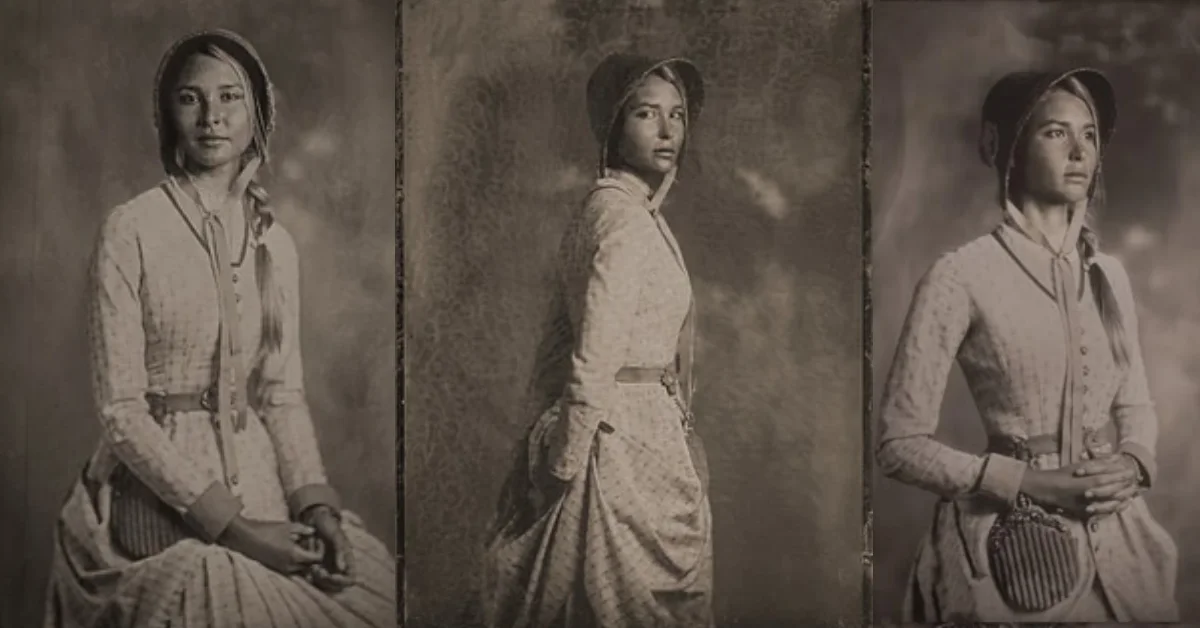
Elsa Dutton’s Love Interests
Elsa’s romantic journey parallels her physical one, marked by passion, loss, and personal growth.
Her first love, Ennis, shows up like something out of a storybook—brief, sweet, and doomed. Their romance shocks the wagon train, sure, but Elsa doesn’t care. It’s her life, and she wants to live it her way, even if it stings. Their plans for a future together end abruptly when bandits kill Ennis, giving Elsa her first taste of frontier tragedy.
Later, Elsa forms a profound connection with Sam, a Comanche warrior who recognizes her independent spirit. Their relationship transcends cultural boundaries, with Sam teaching Elsa Comanche ways and accepting her as she is. They marry according to Comanche tradition, planning to reunite after Elsa helps her family reach their destination.
Fate intervenes before they can reunite, but through these relationships, Elsa experiences the full spectrum of love – its joys and heartbreaks. Each romance shapes her understanding of herself and the world, contributing to her growth from girl to woman.
Elsa Dutton’s Role in ‘1923’
Though Elsa’s physical journey ends in 1883, her voice lives on as narrator in 1923, the next chapter of the Dutton saga. This narrative continuity creates a haunting bridge between generations, with Elsa’s observations connecting past to present.
From beyond the grave, Elsa provides context and emotional resonance to the continuing Dutton story. Her perspective spans decades, giving viewers insight into how early decisions shape future outcomes.
“The Duttons paid for this land in blood,” she reminds viewers, establishing the family’s sacrificial connection to their ranch. Her narration grounds the expanding Yellowstone universe in personal history rather than abstract timelines.
Elsa Dutton’s Legacy
Few characters leave such a tangible legacy. Every corner of the Yellowstone Ranch exists because Elsa chose it as her final resting place. This physical connection grounds the Dutton claim to Montana in emotion rather than just legal ownership.
Beyond geography, Elsa’s spirit lives on in the Dutton family values. Her fierce independence, connection to the land, and willingness to defend what matters echo through generations of Duttons who never knew her personally.
As narrator across multiple series, Elsa becomes the family’s collective memory. She witnesses their triumphs and failures with equal clarity, providing context when characters lose sight of their history.
“This is the story of how we lost one world and gained another,” Elsa explains, positioning the Duttons within America’s larger transformation from frontier to established nation.
Elsa Dutton’s Character Traits
What makes Elsa stand out among frontier narratives is her complex personality – neither saint nor sinner but authentically human.
Her resilience defines her journey. When faced with challenges that break other travelers, Elsa adapts and continues forward. This strength doesn’t come from denying difficulty but from facing it honestly.
Adventure calls to Elsa’s spirit. Unlike many characters who travel west from necessity, Elsa embraces the unknown with genuine curiosity. Her openness to new experiences leads her to discover joy in unexpected places.
Empathy marks Elsa’s interactions across cultural boundaries. Whether connecting with immigrants on the wagon train or learning from indigenous peoples, Elsa approaches differences with respect rather than fear.
Most distinctively, Elsa’s narrative voice cuts through frontier mythology with unfiltered truth. She describes beauty and brutality with equal honesty, refusing to romanticize or demonize the West.
“I think cities are places where people hide from their sins,” Elsa observes. “Out here, there is nowhere to hide.” This unflinching perspective makes her an ideal witness to America’s foundational period.
Isabel May’s Portrayal of Elsa Dutton
Finding an actress who could embody Elsa’s complexity presented a challenge. Isabel May meets this challenge with remarkable depth, capturing both Elsa’s youthful exuberance and growing wisdom.
May’s performance balances vulnerability with fierce determination. Whether riding alongside cowboys or facing down danger, she makes Elsa’s transformation believable at every step.
The emotional range required for Elsa’s journey – from innocent wonder to profound grief – showcases May’s versatility. Her narration provides the emotional backbone of “1883,” guiding viewers through historical events with a personal connection.
Creator Taylor Sheridan originally didn’t plan for Elsa to narrate the series. After meeting May during auditions for another role, he was so struck by her presence that he rewrote “1883” with Elsa as its central voice. This creative decision transformed the series from historical drama to personal testament.
May doesn’t just act like Elsa—she becomes her. She does the riding herself, leans into the mud and dust, and makes you believe this girl from Tennessee could survive the wild and come out tougher, not broken.
Conclusion
Few characters from period dramas connect with modern audiences like Elsa Dutton. Her appeal spans demographics, drawing viewers who might otherwise skip Western stories.
Elsa never quite fits the mold, and maybe that’s the point. Her shift from corsets to freedom might sound modern, but it never feels out of place. If anything, it just feels like someone waking up to what they were always meant to be.
The universal themes in Elsa’s story – finding identity, experiencing first love, and facing mortality – transcend historical settings. Viewers connect with her emotional journey regardless of their interest in Western history.
Most powerfully, Elsa’s voice guides viewers through difficult truths about America’s past without simplistic judgments. She witnesses the beauty and brutality of westward expansion, acknowledging both without reducing either to stereotype.
“The road west is filled with failures,” Elsa observes. “But failure isn’t what drove them, it’s what they found there.” This nuanced perspective makes her an ideal guide through complicated history.
Through Elsa Dutton, “1883” transforms historical drama into personal testimony. Her journey becomes our window into America’s defining period – not through textbook facts but through lived experience with all its joys, sorrows, and contradictions. Long after viewers forget specific plot points, they remember Elsa’s voice narrating the birth of the American West with unforgettable clarity.
